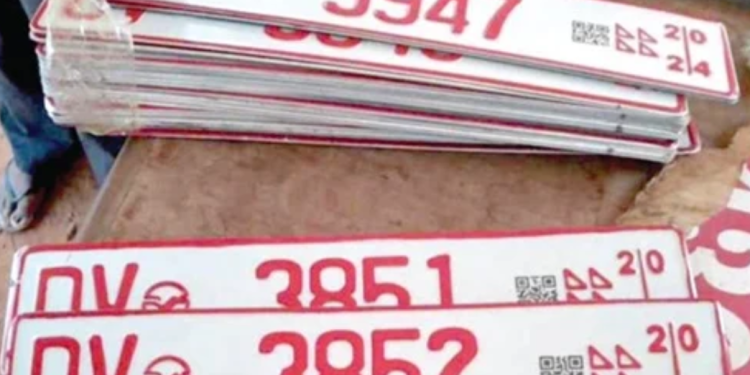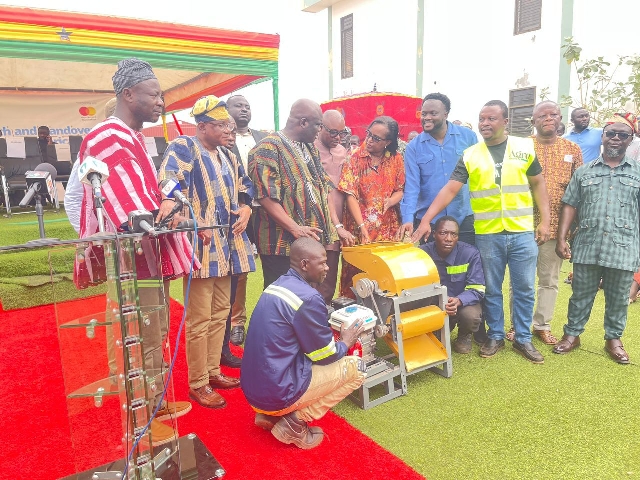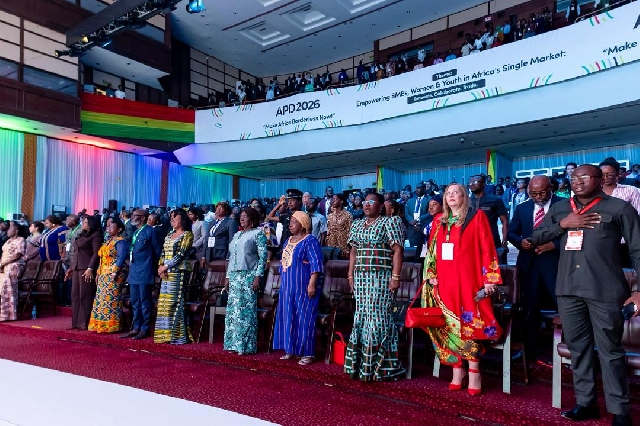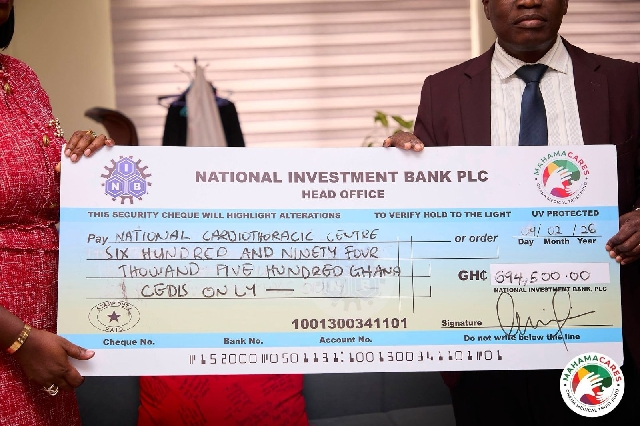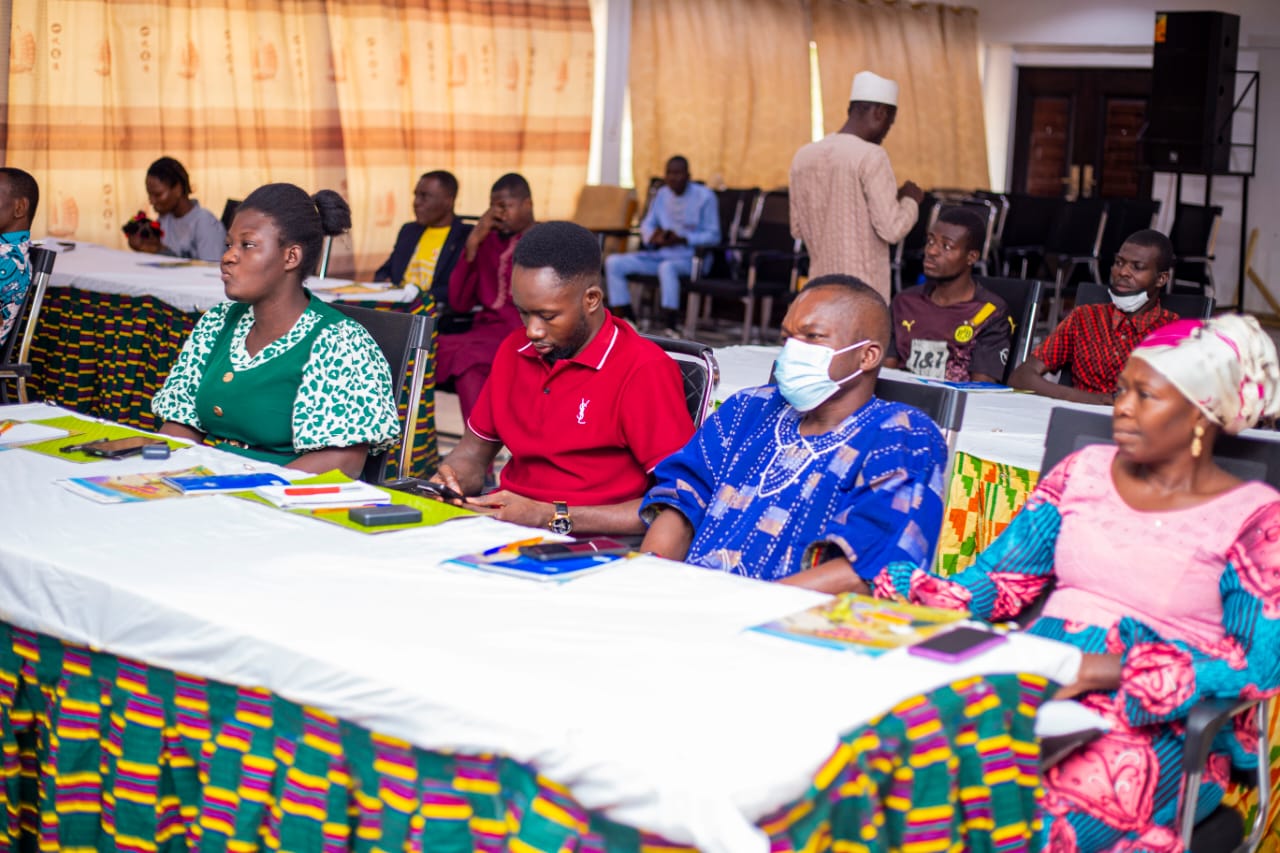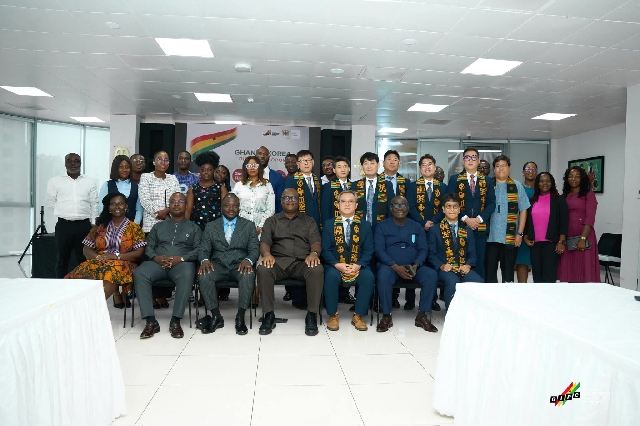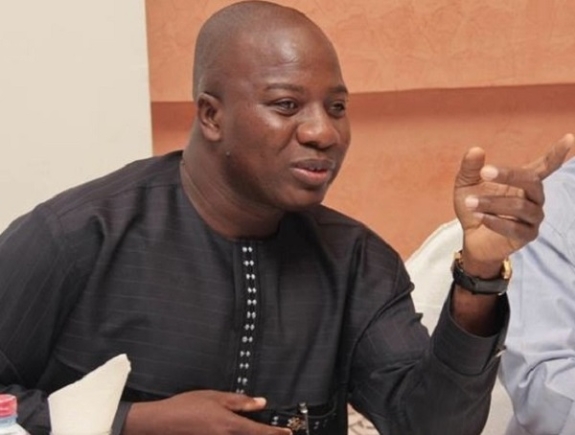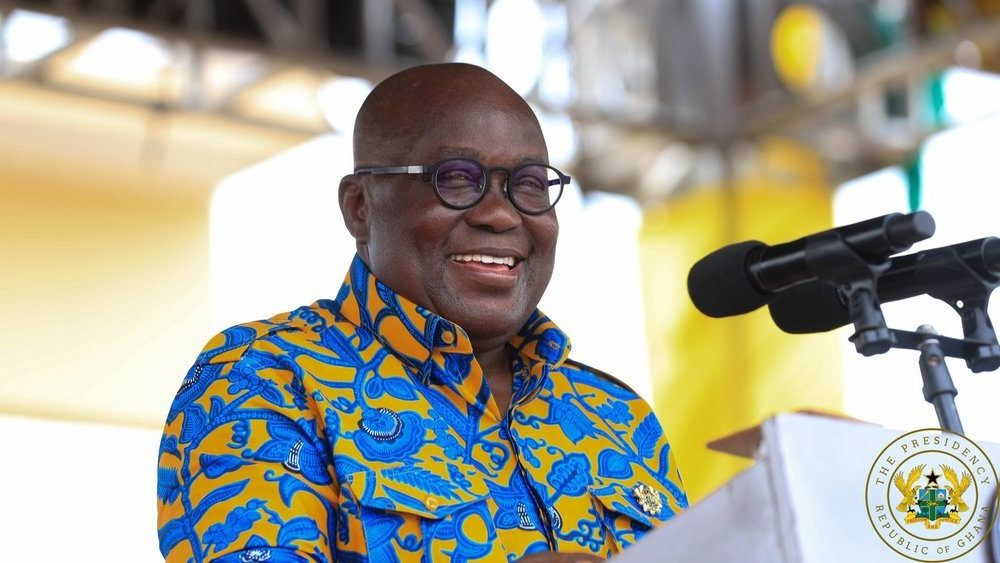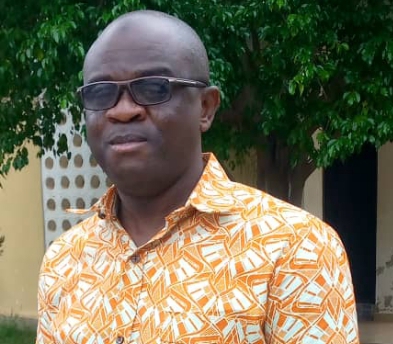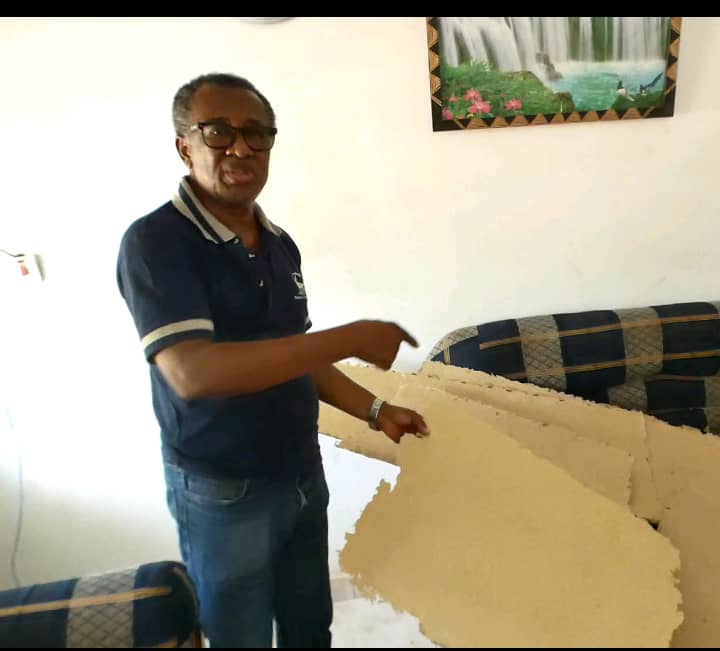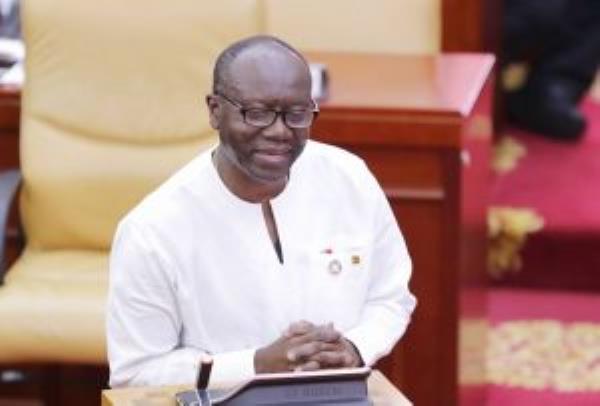Finance Minister, Ken Ofori-Atta, has mentioned that over 160,000 direct and indirect jobs have been made under its flagship programme One District One Factory (1D1F). Ofori-Atta while addressing Parliament during the budget reading says “Mr. Speaker, in line with the government’s unwavering commitment to industrialization, the implementation of the flagship One District, One Factory (1D1F) Initiative is on course. As of June 2023, 126 factories were operational nationwide. Over 160,000 direct and indirect jobs have been created, especially for the youth who have been mobilized to establish agro-processing factories in 58 districts.” The One District One Factory (1D1F) initiative is the vision of His Excellency the President, Nana Addo Dankwa Akufo-Addo to change the nature of Ghana’s economy from one which is dependent on the import and export of raw materials to one which is focused on manufacturing, value addition and export of processed goods. These raw materials are largely found in the districts which would have otherwise gone to waste. The initiative as proposed by His Excellency Nana Addo Dankwa Akufo-Addo is private sector-led. Government creates the necessary conducive environment for businesses to access funding from financial institutions and other support services from Government agencies to establish factories. Ghanaian entrepreneurs will thus own the companies, operate them and bear all the risks and rewards of the projects. Apexnewsgh.com/Ghana Please contact Apexnewsgh.com on email apexnewsgh@gmail.com for your credible news publications. Contact: 0256336062
1D1F: Yorogo leather, a factory only that Trade Minister is finding it….
The Bolgatanga Municipal Chief Executive Rex Asanga has refuted claims by some individuals who hold the views that Bolgatanga Municipal has not benefited from any factory under the government policy of 1District 1Factory (1D1F). According to Mr. Asanga, the Municipality has benefited from the government’s policy at Yorogo. He said the leather factory is only not active currently because the Trade Minister has not been able to find suitable machines to kick start production. “We have a leather factory at Yorogo, the buildings are completed. The problem is that the Minister of Trade is finding it difficult to get suitable machines for the factory”. “Is a factory in the making, if the machines were there by now, is going to give employment to about 60 youths” The “One District One Factory” Initiative is a key component of the Industrial Transformation Agenda of the NPP Government. The concept was first introduced by the Ministry of Trade, Industry and Presidential Special Initiatives during the past New Patriotic Party (NPP) Administration, as part of an integrated programme for Accelerated Growth and Industrial Development. Originally designated as the Rural Enterprises Development Programme, and later rebranded as the District Industrialisation Programme (DIP). It was designed as a comprehensive programme for rural industrialisation, involving the setting up of at least one medium to large scale factory in each of the administrative districts of Ghana. Source: Apexnewsgh.com/Ghana For publication please kindly contact us on 0256336062 or Email apexnewsgh@gmail.com
FACT-CHECK: Claim by NPP Communicator in the Upper East Region about Paga Shea nut processing factory FALSE and MISLEADING
The claim by a Regional Member of the NPP communication Team Seidu Gazirey Kamal that the governing New Patriotic Party has provided a modern and running Shea nut processing factory in Paga is false and misleading. On Monday, September 19, 2022, during ApexnewsGhana’s flagship developmental program dubbed “SPEAKOUT UPPER EAST’, the topic for discussion was centered on the government policy of One District One Factory (1D1F). Meanwhile, explaining government effort on the 1D1V initiative in the region Mr. Gazirey made the claim that the government has completed a shea nut processing factory in Paga which is currently in use. According to Mr. Gazirey “When you go to Paga, there is a Shea nut processing factory and I will send you the pictures. Is completed and is in use, when you see the building and the paint, you will say wow, the New Patriotic Party is a party one is supposed to really belong to because, in the history of this country, we have never had a modern and running Shea nut factory like the one in there”. He re-affirmed. Meanwhile, Apexnewsgh.com checks in Paga after Mr. Gazirey’s claim shows his claims were misleading Our investigation revealed, that, the Shea nut processing factory he was referring to, was built by a private owner Mr. Clement Ayamga in 2010. The factory is located at Paga Nakolo in Kessena Nankana West District of the Upper East Region. However, during our engagement with Mr. Ayamga, he said: “I actually build my factory during Prof. Mills’s time. I was in the UK and I came down to Ghana in 2010 and then did a Public-Private partnership (PPP) I finished school and was looking for a job and that PPP opportunity came up. I used my own money to build the factory in 2010. Since then, when Mahama took over the whole thing has been dormant and I have been struggling to run the place myself, and you know without support how difficult it is to run a factory like that. It was earmarked in 2018 subsequently”. “We were invited to a meeting in Kumasi to absorb the NABCO beneficiaries, which i took 12 of them. So, under that program, the project is under 1D1F, to be honest with you. But in 2019, I took a loan of Ghc 200,000 from Ghana Exim Bank before the project was described as 1D1F. So, am paying the loan to Ghana Exim Bank now”. He stressed He further said, “The 1D1F officials, have been linking with me to see how they can support the place and about ‘3 weeks ago, one Mosi Mohammed visited the factory and later send me some document of financial requirement I need for the place to set up and i filled it and forwarded back to him. “All they need to do now is to offer me support financially. My brother, I believe in reality, if it is me Clement Ayamga that will sacrifice and bring development to my women because the job am doing is a shea butter factory, why not. I don’t discriminate. I actually believe that whichever government… because this is Kwame Nkurumah ideology and Prof Mills endorsed it”. “But up till now, I have not received any financial support from them, but they visited me 3 weeks ago and requested for my budget and production capacity”. Even though there has been an effort to assist the factory owner with some financial support, Mr. Ayamga said he hasn’t heard from 1D1F officials as at the time we are filing this report. Source: Apexnewsgh.com For publication please kindly contact us on 0256336062 or Email: apexnewsgh@gmail.com
Professor David Millar turned nuisance grass into an essential commodity after a successful production of brown paper
To what looks and sounds like the first of its kind in the entire African continent, the President of the Millar Institute for Transdisciplinary and Development Studies Prof. David Millar, and his Institution have identified a solution for nuisance grass wastage, especially for those in the northern part of Ghana. Something that is well regarded by the citizens as a nuisance waste will soon become an essential commodity, and this is because Prof. Millar through research has identified that the grass we normally described as a nuisance waste could serve as a life-changer to citizens in most communities across the country and the world at large. Professor. David Millar during a One on One exclusive interview with Ngamegbulam Chidozie Stephen of Apexnewsgh.com at his office on Thursday, June 2, 2022, said, he want the attitude and behaviors towards grass to be transformed into one that is generating resources, generating opportunities, alleviating poverty and improving livelihoods. Meanwhile, engaging him more about his new grass revelation and converting of grass into brown paper production, he said: “In our research, the focus is to make the research as relevant as possible for the jurisdiction in which we find ourselves and we are situated in the grassland Savanna Region and the major material that is common to all and easily accessible is grass. So, in our endeavor to create an agenda for research, we opted for looking the possibility of initiating a grass industry for northern Ghana, an industry that would take advantage of the commodity that we have widespread and also, that would involve all categories of persons, all stakeholders will be key players in that industry and hence, the grass came out strongly as a common commodity. He said. According to Prof. Millar, their investigation shows that as far as the communities are concerned, grasses are a nuisance and during a certain time of the year, they don’t see what can be done of grass and they subject it to bush fires or burning and hence, they ended up destroying the commodity called grass. “As scientists, if you are able to look at this so-called nuisance and transform it into an essential commodity, won’t it come along with a management regime that will help prevent the annual ritual of burning grasses? So, that is one of the strongest motivations we have for embarking on grass development or if you like grass economy”. He stressed “We want the attitude and behaviors towards grass to be transformed into one that is generating resources, generating opportunities, alleviating poverty and improving livelihoods”. So, we embarked on looking further into what the possibilities are. We started with the grass charcoal in order to develop grass breakers that will replace tree charcoal in terms of renewable energy and we are very far gone with that. We have some experimental samples we have produced. So, while doing that, we also thought that we should address the issue of environmental pollution. We have all these plastics that are all over the place, all over the country, we appear not to have any solution towards dealing with the menace of plastics and we are also afraid to institute laws because we have no alternative”. “It doesn’t make sense when you put a law banning an item when you don’t have a substitute, the law becomes an abattoir around people’s necks and you create a lot of management problems. So, we said, we would start working on this alternative to plastics and hence we decided to start experimenting with the transformation of the everyday grass, the conventional, and the grass that is burned into paper and I must say we have some interesting results to show. He pointed Prof. Millar further revealed, “Right now, we are still at the stage of developing a brown rough paper and we expect to arrive at the brown smooth paper and then we think of other light forms of paper. Besides the plastic replacement, the brown paper can still serve as envelopes, toilet rolls and many other opportunities that the paper can serve as cardboard boxes and means of packaging”. “So, the various windows that are open to this small enterprise and we anticipate a very rapid growth of the enterprise and an enterprise that will deal with environmental issues, social issues, livelihood concerns and even poverty because we normally purchase the grass from the communities. “So, there are all these arrays of benefits that go along. Men can easily sell grass if there is a grass market, women can sell grass, old ladies can sell grass and even children going to school can sell grass. If they have a problem paying school fees, you can take a load of grass go and sell and the child might even be in the position of paying the school fees for himself. So, these are the benefits of this enterprise we have started. During the dry season, most parts of the country especially in the north experienced terrible bush fire burning which normally caused a lot of havoc to farmers who mostly appeared victims after losing their produce for the year. But with this development, the frequent bush fire burning is likely to reduce drastically because, community members and land owners will take their grasses more serious because, it has become a commodity and no more waste. However, asking whether the wonderful grass initiative has received any form of collaboration or support from the government? Prof. Millar responded: “I must say, this One District One Factory (1D1F) thing, this is one factory that has multiple effects. The district could easily order waste bags, which would give them an opportunity to rule against plastic bags. District Assemblies can now say, no more plastic bags because we now have paper bags in the market. So, this is a good point you have raised, we have not reached out to them yet but, from the sharing of information and experience, we will get to that level as well. He said
Mid-Year Budget Review: One million jobs for youth coming – Ofori-Atta
The government has outlined plans to create about one million jobs as part of a three-year strategy to address youth unemployment in the country. The Finance Minister, Ken Ofori-Atta made this known during his presentation of the mid-year fiscal policy review to Parliament on Thursday July 29, 2021. According to him, though government through its flagship programmes like the 1 District 1 Factory (1D1F) and Planting for Food and Jobs (PFJ) has created significant number of jobs, the issue of youth unemployment in the country still persist and it is thus putting measures in place to create more and better jobs for young Ghanaians, both in the public and the private sectors of the economy. He said: “I have had extensive discussions with my colleague Ministers of Employment and Labor Relations, Youth & Sports and Lands & Natural Resources. These conversations culminated in a comprehensive strategy to sustainably address youth unemployment. New programmes will be introduced and existing ones scaled-up and refocused to meet the aspirations of our youth. “We will work together to sensitize and connect the youth to the numerous opportunities being made available by Government programmes, including a 3-year strategy to create job opportunities for 1 million Ghanaian youth. There are currently about 5 on-going programmes through which we intend to create these jobs,” he said. Although the economic disruptions occasioned by the COVID-19 has led to more people losing their jobs, Mr. Ofori-Atta said government’s plan to reboot the economy and set it back in motion through the Gh¢100 billion Ghana CARES ‘Obaatanpa’ revitalization programme will be vital in the country’s journey towards the creation of this 1 million jobs. This he said will help accelerate competitive import substitution and export expansion to generate sustainable jobs for the teeming youth (under 35 years), which constitutes about 71% of the population. Please contact Apexnewsgh.com on email apexnewsgh@gmail.com for your credible news publications. Contact: 05555568093

